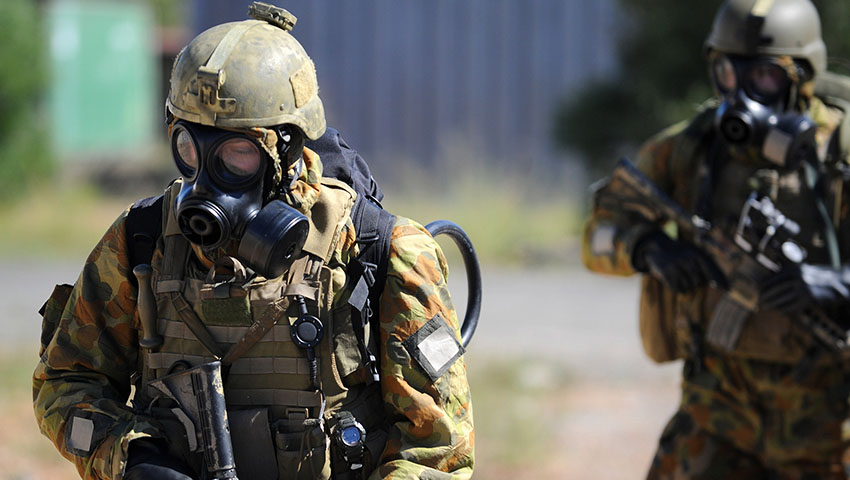DST scientists are actively supporting international efforts to obtain a total and comprehensive ban on the development, production, stockpiling and use of chemical weapons.
To continue reading the rest of this article, please log in.
Create free account to get unlimited news articles and more!
These efforts have included providing scientific advice to diplomats from the Department of Foreign Affairs and Trade during the negotiation of the Chemical Weapons Convention, and, later, supporting the Organisation for the Prohibition of Chemical Weapons (OPCW), the international agency tasked with the implementation of that convention.
A critical part of the support provided by DST is the development of methods to accurately analyse chemical warfare agents and their degradation products. This analysis capability is necessary for the effective verification of the provisions of the Chemical Weapons Convention, including the destruction of all existing stockpiles of chemical weapons and investigations into their alleged use.
Leader of DST's chemical and biological verification team, Dr Craig Brinkworth, explains that in order to become designated, nominated laboratories are required to participate in rigorous proficiency testing.
"To achieve and maintain designated status for biomedical samples, we must successfully complete annual proficiency testing across two consecutive tests. Failure of any subsequent test results in loss of this status," Dr Brinkworth said.
One way in which the OPCW has ensured that it can maintain a capacity to investigate allegations of chemical weapons use is through the establishment of a network of OPCW designated laboratories.
DST is one of a relatively small number of laboratories among the 193 member states of the Chemical Weapons Convention that has earned the status of 'designated laboratory' with the OPCW, achieving designated laboratory status for the analysis of biomedical samples (plasma and urine) in 2016.
Designated laboratories must be able to rapidly and accurately perform analysis of chemical samples collected by OPCW inspectors from suspected chemical weapons production facilities, storage depots or sites of alleged chemical weapons incidents.
Dr Brinkworth added, "The samples we receive may be spiked with compounds at concentrations as low as four parts per billion, so we need to be sure that our techniques are both sensitive and accurate."
Having achieved designated status for biomedical samples, DST is currently working towards achieving designated laboratory status for the analysis of environmental samples.
"Unlike biomedical samples where we are measuring for evidence of exposure to a small number of select agents, when we analyse environmental samples we are measuring for the possible presence of a large number of different chemical warfare agents and their related products," Dr Brinkworth explained.
With proficiency requirements for analysing biomedical samples satisfied, Dr Brinkworth and his team are now waiting for the legal agreements to be put in place to enable them to start receiving samples obtained during OPCW inspections. It is anticipated that these agreements will be in place in the near future.
Stephen Kuper
Steve has an extensive career across government, defence industry and advocacy, having previously worked for cabinet ministers at both Federal and State levels.

 Login
Login








